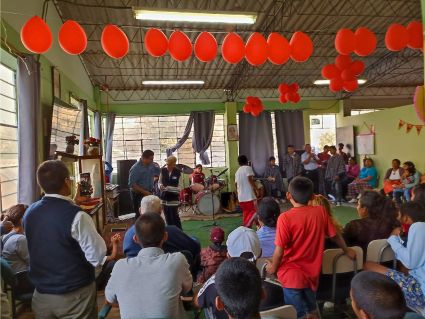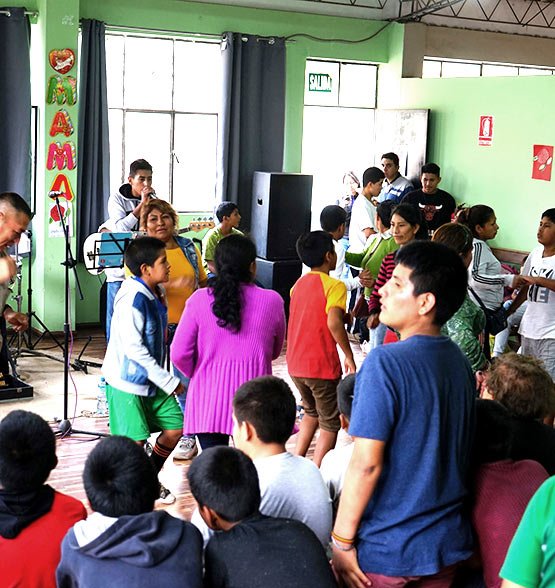
The Role of the Family
The role of the family is key in the rehabilitation process of the children. It is essential to strengthen family relationships to rebuild the emotional dimension in children and adolescents.
Initially, during the first 3 months, children and adolescents are not allowed to leave on leave. The goal is for them to get used to the functioning of CIMA and detach themselves from the problematic social environment in which they were. However, they can make phone calls and receive visits. After the first three months, every two weeks the children and adolescents can visit their families, provided they have positive evaluations of their behavior at CIMA and at school. At first, their parents come to pick them up and bring them back. If everything goes well, gradually the older children can go home alone. They are given a family leave slip with the departure time from CIMA so their parents can check that they are not using this autonomy to wander the streets.
As for the younger children, their parents must pick them up and bring them back. On the same slip, parents must present their observations on the child’s behavior over the weekend.
From the beginning of their stay at CIMA, parents can visit their children whenever it suits them, as there are no set visiting hours. Social workers and psychologists take advantage of these visits to interact with them, ensuring they do not abandon their parental responsibilities towards their children.
To complement the work with families, social workers and psychologists make home visits, prioritizing the most dysfunctional families. Training workshops are organized by sector for families living in the same district. These workshops aim to raise awareness among parents about the roles and skills they should have and to promote their abilities. The goal is also to improve the family’s lifestyle in terms of economics, nutrition, etc.
When the family unit is highly dysfunctional, and the parents cannot take in the child, CIMA tries to establish contact with other relatives (aunts, uncles, grandparents, etc.).

